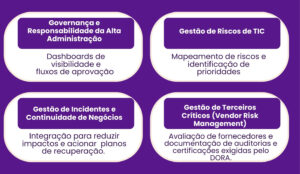What is DORA?
The Digital Operational Resilience Act (DORA) is a European Union regulation that came into force in 2025. Its objective is to strengthen the digital operational resilience of financial institutions by standardizing ICT (Information and Communication Technology) risk management practices, business continuity, and supervision of critical third parties.
For banks, insurance companies, fintechs, and other industry players, DORA is a regulatory obligation, but it also represents an opportunity to strengthen customer and investor confidence in a scenario of growing cyber threats.
It is in this context that ServiceNow presents itself as a strategic partner, offering a platform capable of integrating compliance, risk, and operations into a single environment. Thus, ServiceNow adheres to DORA as a strategic and security step for its customers.
ServiceNow's Strategic Role in DORA Compliance
THE ServiceNow is an integrated workflow platform that provides a central digital governance hub where risks, incidents, and audits are monitored in real time. Thus, with DORA compliance, ServiceNow now stands out in:
- Centralization of risk management and compliance
With ServiceNow, organizations can unify regulatory controls, simplify audits, and create automated reports that reduce human error and inconsistencies.
- Executive dashboards and senior management responsibility
DORA requires senior management to take direct responsibility for digital operational resilience. ServiceNow helps with this with interactive dashboards, providing clear visibility into risks, compliance status, and critical incidents.
What it means for ServiceNow
DORA, in addition to regulating banks and insurers, impacts the entire ICT supply chain, including platform providers like ServiceNow. Therefore, ServiceNow itself must align its services, processes, and governance models with DORA requirements to remain a trusted partner for financial institutions in the European Union.
Joining DORA has three implications for ServiceNow:
-
Market confidence – To be seen not just as a technology provider, but as a resilient partner that also meets regulatory requirements.
-
Competitive positioning – Differentiation from other governance, risk and compliance platforms.
-
Strategic expansion in Europe – Since DORA affects all financial institutions in the EU, ServiceNow can expand its presence in the banking and insurance sector.
Competitive Benefits of DORA Compliance with ServiceNow
In addition to the benefits of global visibility, ServiceNow's adherence to DORA provides:
- Enhanced security: Compliance is not just regulatory: it reduces the risk of cyberattacks and business continuity failures.
- Competitive advantage and stakeholder trust: Institutions that adapt faster to DORA with the support of ServiceNow will convey greater confidence to the market.
ServiceNow Features Applied to DORA
The ServiceNow platform already has modules that fit directly into the DORA pillars. Discover the main ones:
How to Implement DORA Compliance with ServiceNow
Implementation should be done in stages, focusing on the integration of regulatory processes and technology:
1. Initial assessment and mapping
Identify critical ICT functions, map risks and third-party dependencies, and also assess the current level of operational resilience maturity.
2. Configuring ServiceNow Modules
IRM for governance and risk, vendor risk management for third-party control, business continuity management for crises, and security incident response for cyberattacks.
3. Integration with existing systems
Connect ServiceNow to monitoring tools and create automated workflows for rapid incident response.
4. Simulated tests and audits
Conduct crisis simulations to verify that processes comply with DORA, in addition to producing compliance reports to be delivered to regulators.
5. Continuous improvement
Review business continuity plans regularly and adjust controls based on new threats and regulatory updates.
Why is this an important step for ServiceNow?
-
Regulatory relevance: DORA creates a market where only suppliers that demonstrate digital resilience will be able to operate in financial institutions in the European Union.
-
Global expansion: By joining DORA, ServiceNow also strengthens its credibility in other regulated markets (such as the US, where similar regulations are being discussed).
-
Strategic alignment with customers: Financial institutions want partners who not only provide technology, but also live up to the same resilience standards required of them.
-
Transformation into market benchmark: ServiceNow has the opportunity to become the gold standard for DORA implementation across major financial players.
How does 4MATT help implement DORA with ServiceNow?
DORA compliance requires expertise and experience in integrating complex processes. In this context, 4MATT stands out as a strategic partner for institutions across various sectors that want to implement DORA using the ServiceNow platform.
4MATT's current client is one of the world's largest insurance companies, which has implemented DORA with ServiceNow. The insurer is an international company, headquartered in Europe, which necessitates compliance with DORA. Therefore, they chose ServiceNow as their platform for compliance with the regulation, and 4MATT plays a key role in this compliance, supporting the implementation with the client.
In addition, 4MATT also works with highly regulated sectors, such as financial, which ensures in-depth knowledge of DORA requirements. When implementing DORA, 4MATT and ServiceNow adopt a consultative approach, beginning with a diagnosis of the organization's digital resilience maturity. Furthermore, it ensures alignment with international governance frameworks such as ITIL, ISO 27001, and NIST, complementing the controls required by European regulations.
Are you unsure whether your company is regulated by national and international standards for IT platforms and tools?, talk to 4MATT experts today to regulate your digital transformation.












